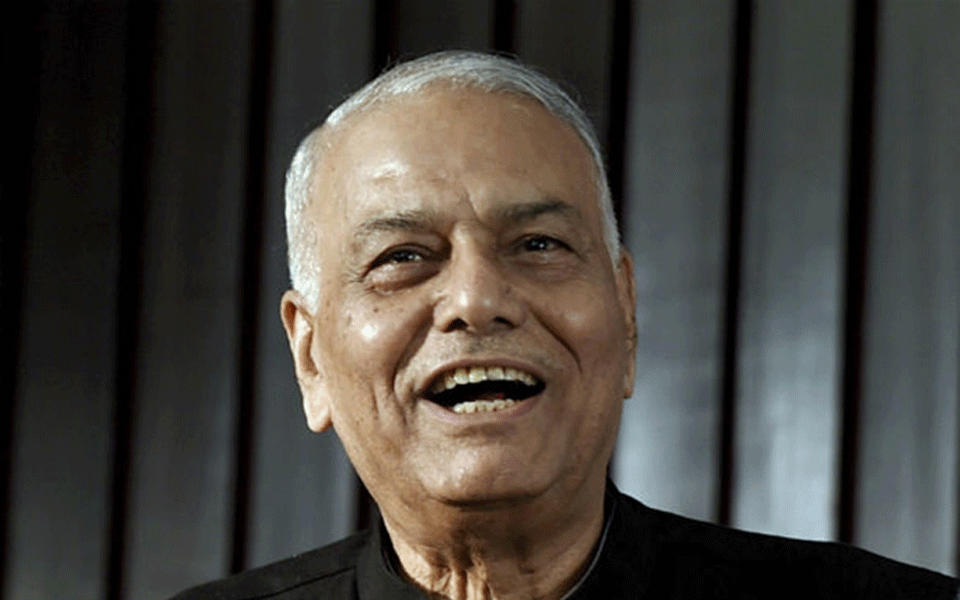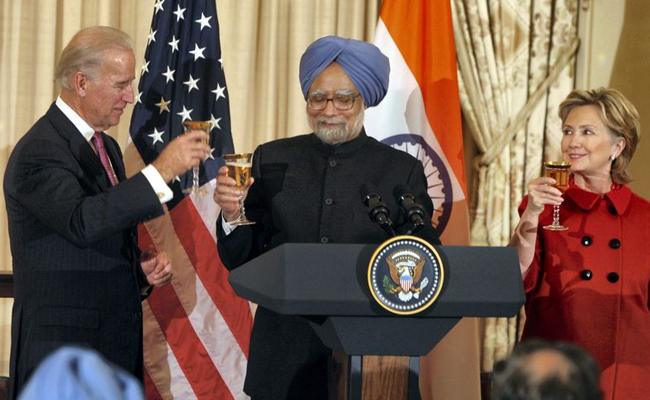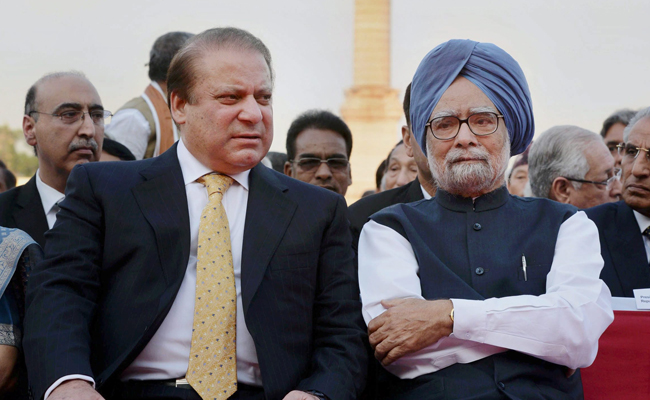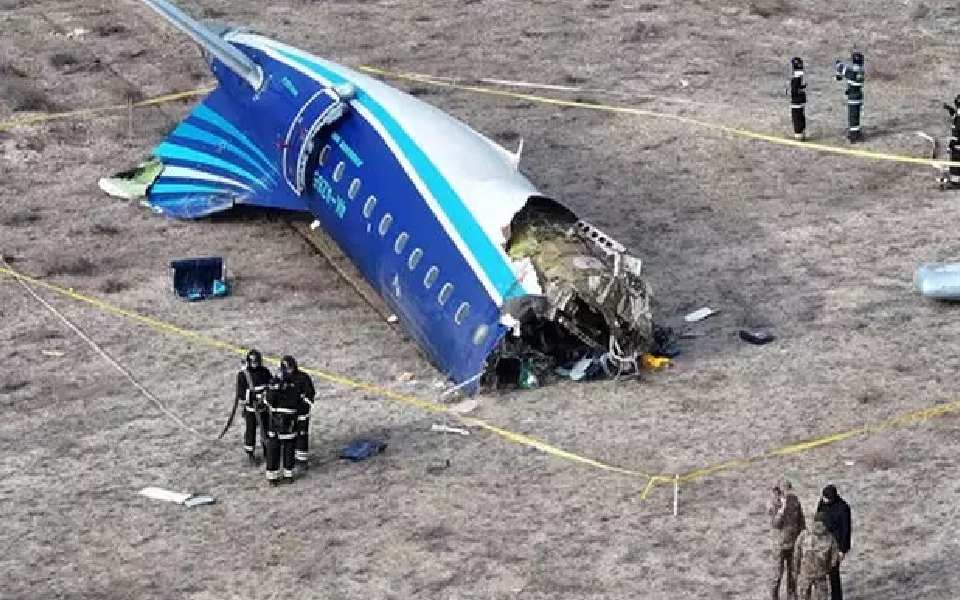Bengaluru, May 27: BJP former leader Yashwant Sinha said that he does not have the belief that election process would be held properly through Electronic Voting Machines (EVMs) and got good results.
Speaking at a symposium on ‘threat to democracy and constitution’ organized by the Progressive Forum at the Legislators House in the city on Sunday, Sinha said that developed countries have already have already said that EVMs could be hacked. But the Central Election Commission is not accepting it. Instead, it has been challenging to prove allegation, he said.
For the last four years, the democracy in the country is in a dangerous situation. Democratic organizations have been targeted. When the opposition parties are against presenting the budget, the Prime Minister has never tried to pacify the opposition leaders by discussing with them, he alleged.
When Atal Bihari Vajpayee was the Prime Minister, he had directed the opposition parties not to disturb the Parliament Session. Because of this reason, the government was responding to the demands of the opposition parties including no-confidence motion, he said.
Clear message
As the secular political parties have come together and formed the government in the state after the Assembly election, it has sent a clear message to the country. In the last Lok Sabha election, BJP has got just 31 per cent of votes and 69 per cent of votes were against it. If all the political parties come together, it is sure that secular parties would form the government at the center, he said.
Nowadays, media houses were being controlled to win the election. Both media and social media are so dangerous. Every citizen should speak loudly and protect the country and democracy, he appealed.
Freedom fighter HS Doreswamy, former minister BT Lalitha Nayak, dalit leader Lakshminarayan Nagawara, former MLA BR Patil, Congress senior leader BL Shankar. MP Nadagouda and others were present.
Let the Truth be known. If you read VB and like VB, please be a VB Supporter and Help us deliver the Truth to one and all.
San Francisco (PTI): The US has offered its condolences on the passing of former Prime Minister Manmohan Singh, with Secretary of State Antony Blinken calling him "one of the greatest champions of the bilateral strategic partnership."
Singh, the architect of India's economic reforms, died at the All India Institute of Medical Sciences on Thursday night. He was 92.
He is survived by his wife Gursharan Kaur, a history professor, and three daughters.
“Dr Singh was one of the greatest champions of the US-India strategic partnership, and his work laid the foundation for much of what our countries have accomplished together in the past two decades,” US Secretary of State Tony Blinken said.
Offering sincere condolences to the people of India for the passing of Singh, Blinken said the leadership of the former prime minister in advancing the US-India Civil Nuclear Cooperation Agreement signified a major investment in the potential of the US-India relationship.
“At home, Dr Singh will be remembered for his economic reforms that spurred India’s rapid economic growth. We mourn Dr Singh’s passing and will always remember his dedication to bringing the United States and India closer together,” Blinken said.
Saddened by the death of Singh, Indian American Congressman Ro Khanna said the former prime minister will always be remembered for his pioneering economic reforms that led to India's economic growth.
“I was proud to work with the Bush administration on securing the US-India Nuclear Deal and have a letter thanking me for my work on that from Prime Minister Singh in my office. He will always have my respect and admiration,” Khanna told PTI.
Sending his heartfelt condolences to the family of the former prime minister and to the people of India on his passing, Atul Keshap, president of US India Business Council said Singh played a key role in elevating US-India ties and modernising the relationship and embarking both democracies on a steady path of strategic, economic, and technological convergence.
“Through his sustained leadership in achieving the transformative agreement on civilian nuclear energy cooperation, Prime Minister Manmohan Singh was rightly regarded as an architect of the modern bilateral relationship,” Keshap said.
Noting that Singh’s vision, teachings and leadership will be lessons for posterity, the board of US India Strategic and Partnership Forum (USISPF) said the former prime minister was a scholar, statesman, and a venerated leader, and dedicated his life to serving the nation and enriching the lives of a billion plus Indians.
“Dr Singh was an eminent economist and a doyen of India’s economic transformation. The seminal moment in India’s leap to an economic powerhouse came in 1991 when Dr Singh then serving as the country’s Finance Minister, and under the stewardship of Prime Minister PV Narasimha Rao, both shepherded India through an economic morass,” USISPF said.
They spearheaded bold economic reforms that liberalised the country’s economy, paved the way for investors, and set the nation on a path of accelerated growth and global integration, it said.
“Dr Singh deeply believed in the US-India partnership and his unwavering commitment to strengthening ties left an indelible mark on both nations. None more so, than the historic US-India Civil Nuclear Agreement signed in 2007, which symbolised a new era of trust and collaboration and set both Washington and New Delhi on the path to forging the most consequential relationship of the 21st century,” it said.
“Dr Singh’s eternal belief in the shared values of democracy and mutual respect brought the United States and India closer together and his contributions to the relationship remain a cornerstone of his legacy,” it said.
“As Prime Minister for a decade from 2004 to 2014, Dr Singh guided India through a period of rapid development, social progress, and global recognition. His tenure was marked by transformative policies improving the lives of millions of people across India,” USISPF noted.
“But above all, generations of Indians and historians will remember a stalwart, who was a beacon of humility, an intellectual giant who never lost sight of the common man. On behalf of the Board of USISPF, we extend our deepest condolences to Mrs. Gursharan Kaur, Dr Singh’s family, friends, and the people of India during this time of profound loss. We honour his memory and celebrate his immense contributions to India’s progress and the strengthening of US-India relations,” USISPF said.
Former Canadian Prime Minister Stephen Harper said he was saddened to learn of the passing of his former colleague, Prime Minister Manmohan Singh.
“He was an individual of exceptional intelligence, integrity, and wisdom. Laureen and I wish to convey our condolences to all his family and friends,” he said.
“If India and the US have overcome some of the hesitations of history, Dr Manmohan Singh deserves considerable credit. Today, folks talk of cooperation ranging from deep sea to space; it wouldn't have been possible without the risks he was willing to take,” said Tanvi Madan from the Brookings Institute think-tank.
George Abraham, vice-chair of the Indian Overseas Congress, said Singh will be fondly remembered for his outstanding contributions to India's economic and social development.
“Dr Manmohan Singh was the Chief Architect of India's new economy. He has taken a centrally planned, inward-looking, public sector-centred economy and reversed its direction. What he has accomplished is just phenomenal. This dramatic change paints a picture of a man who is some sort of a revolutionary. If India has entered the 21st century, Dr. Manmohan Singh has much to do with it,” Abraham said.





